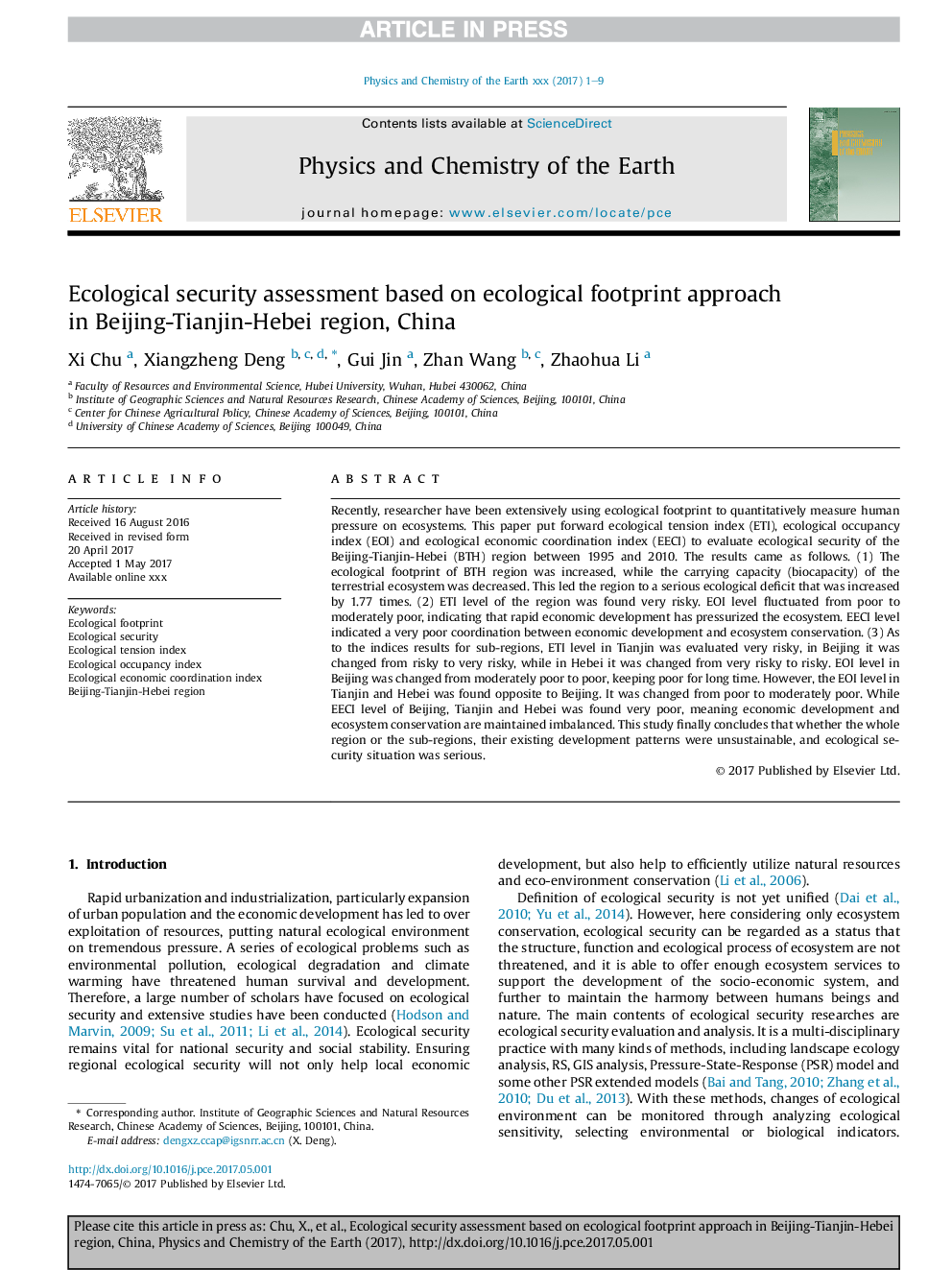| Article ID | Journal | Published Year | Pages | File Type |
|---|---|---|---|---|
| 8912431 | Physics and Chemistry of the Earth, Parts A/B/C | 2017 | 9 Pages |
Abstract
Recently, researcher have been extensively using ecological footprint to quantitatively measure human pressure on ecosystems. This paper put forward ecological tension index (ETI), ecological occupancy index (EOI) and ecological economic coordination index (EECI) to evaluate ecological security of the Beijing-Tianjin-Hebei (BTH) region between 1995 and 2010. The results came as follows. (1) The ecological footprint of BTH region was increased, while the carrying capacity (biocapacity) of the terrestrial ecosystem was decreased. This led the region to a serious ecological deficit that was increased by 1.77 times. (2) ETI level of the region was found very risky. EOI level fluctuated from poor to moderately poor, indicating that rapid economic development has pressurized the ecosystem. EECI level indicated a very poor coordination between economic development and ecosystem conservation. (3) As to the indices results for sub-regions, ETI level in Tianjin was evaluated very risky, in Beijing it was changed from risky to very risky, while in Hebei it was changed from very risky to risky. EOI level in Beijing was changed from moderately poor to poor, keeping poor for long time. However, the EOI level in Tianjin and Hebei was found opposite to Beijing. It was changed from poor to moderately poor. While EECI level of Beijing, Tianjin and Hebei was found very poor, meaning economic development and ecosystem conservation are maintained imbalanced. This study finally concludes that whether the whole region or the sub-regions, their existing development patterns were unsustainable, and ecological security situation was serious.
Related Topics
Physical Sciences and Engineering
Earth and Planetary Sciences
Geochemistry and Petrology
Authors
Xi Chu, Xiangzheng Deng, Gui Jin, Zhan Wang, Zhaohua Li,
